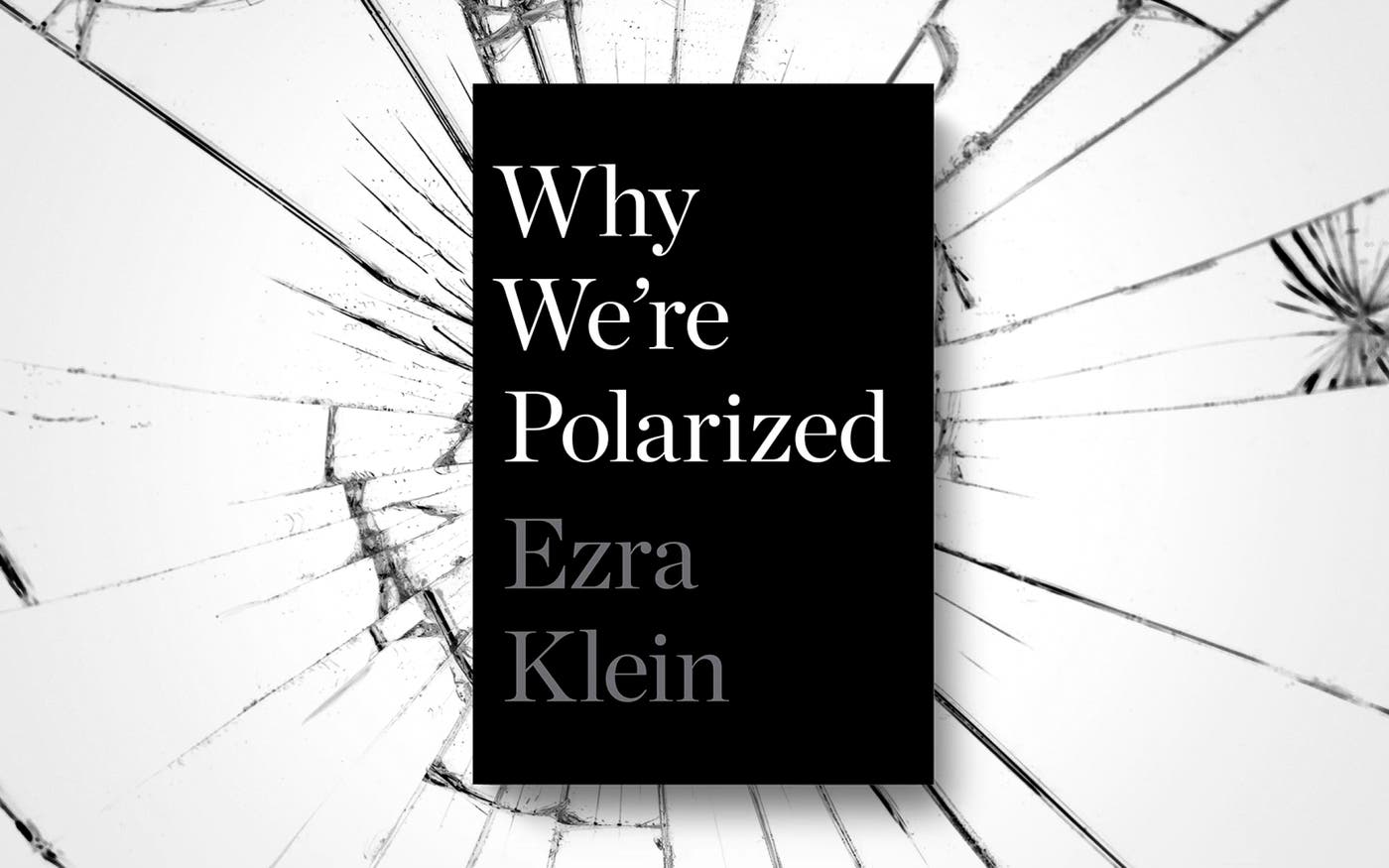
Groupthink
This book helped me understand modern politics better
Why We’re Polarized is a fascinating look at human psychology.

When I meet someone who plays bridge, I feel an immediate affinity for them. It's not because I really know anything about them beyond their taste in card games. For all I know, we could be like oil and water once we actually start talking. But we both love bridge, and that makes me more likely to connect with someone.
There are few forces stronger than the power of group identity. The groups we self-identify as are a key part of who we are. Most of the time, these identities aren’t inherently positive or negative—but each one of them shapes the way we see the world.
In his terrific book Why We’re Polarized, Ezra Klein argues that identity is the answer to the question suggested by his title. The phrase “identity politics” has been thrown around a lot in recent years—usually in a negative context—but Klein explains that it’s human instinct to let our group identities guide our decision making. “A group can know more and reason better than an individual,” he says, “and thus human beings with the social and intellectual skills to pool knowledge had a survival advantage over those who didn’t.”
Why We’re Polarized is fundamentally a book about American politics, but I thought it was also a fascinating look at human psychology. One of my main takeaways was that many of us might need to reframe how we think about changing someone’s mind. I’m a data person (another identity I have!), so my instinct is always to use numbers and logic to convince people of something. When I meet someone who disagrees with me, I tend to explain the merits of my position and compare results of the two different approaches.
But Why We’re Polarized makes it clear that group identity can overrule any argument for or against an issue. If you want to bridge the gap, it’s more productive to appeal to someone’s identity than to their logic.
This is especially true for political issues. Klein explains how political identity used to be more rooted in where you lived rather than what party you belonged to. (This wasn’t always a good thing: He devotes an entire chapter to the damaging influence of the Dixiecrats.) The parties themselves were seen more as shortcuts you could use to inform your choices. “We may not know the precise right level of taxes… but we know whether we support the Democratic, Republican, Green, or Libertarian party,” Klein says.
Americans tended to vote for candidates who made the most sense for where they lived rather than whether they were a Democrat or Republican, which led to a lot more ticket splitting. Between 1972 and 1980, 46 percent of voters in contested districts voted for a different party House candidate from who they supported for president. By 2018, only 3 percent of voters did.
What changed? The political parties themselves. For a lot of different reasons—starting with the fight for the Civil Rights Act of 1964 and including the rise of cable news—both parties have to varying degrees adopted more extreme positions over the last several decades. As a result, the party identities themselves have become more polarized and caused people to dig in more firmly.
I was especially interested to read what Klein had to say about the relationship between social media and polarization. The internet gets a lot of criticism for how it has divided us, but people were seeking out media that corresponded to their political affiliation well before social media. At the same time, it is undeniable, that its ability to connect the fringes of the parties together has exacerbated the situation. When you look at something like January 6th, it’s clear that the internet played a role in enabling the most extreme people to find each other and organize.
Overall, though, Klein thinks that our polarization problem goes much deeper than just social media. He’s quite persuasive, and I agree with him. Like most books, he is much better about diagnosing the problem and educating us on the historical context than he is at offering solutions. Klein has a couple ideas about improvements we could make—such as restructuring the Supreme Court or changing the Electoral College—but he acknowledges none of them are a true solution.
At the end of last year, I said that one of my plans for 2022 was to read more about polarization. It’s a problem I’m quite concerned about, and this helped me understand the phenomena much better. I wouldn’t say I finished the book more optimistic about our ability to tackle the problem, which is even more daunting than I thought. But if you want to understand what’s going on with politics in the United States, this is the book to pick up.


